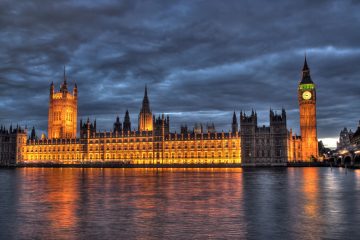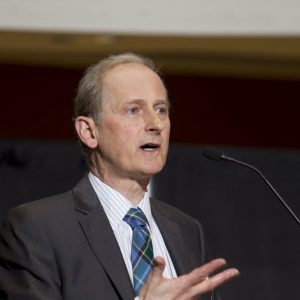
UK Government running costs: High stakes, big claims, low transparency
In this post, Visiting Professor Christopher Hood and Research Officer Ruth Dixon consider why we should care about government administration costs, and call for greater transparency in the reporting of such costs. This article picks up on themes explored in their book, A Government that Worked Better and Cost Less? (OUP, 2015) which recently won the Political Studies Association’s 2016 W.J.M. Mackenzie Book Prize. High Stakes, Big Claims Every UK government at least since that of Margaret Thatcher over three decades ago has made much of its efforts to bear down on the costs of running government. Why? Just as those who give to charity want to see as much as possible of their money go to the intended beneficiaries rather than chief executives’ salaries, and investors …

How does austerity look in retrospect? The UK’s recent fiscal squeeze in historical perspective
With the Chancellor’s 2016 Autumn Statement formally burying the previous “austerity” target of achieving a budget surplus by 2020 and instead adopting a new, more expansionary fiscal rule, how does the recent era of fiscal austerity compare with major fiscal squeezes of the past? Christopher Hood and Rozana Himaz put the data into historical perspective and consider the implications for the future. The Recent Fiscal Squeeze and the Longer Term Pattern Since 2010, the UK has been subjected to one of the longest periods of public spending restraint over the last century. But according to our research that episode also seems to fit a long-term pattern of changes in the depth and composition of fiscal squeezes. When we look back at the historical data …

A Critical Case: The United Kingdom and New Public Management
Julián López Murcia interviews Christopher Hood and Ruth Dixon about their new book ‘A Government that Worked Better and Cost Less? Evaluating Three Decades of Reform and Change in UK Central Government’ which recently won the 2015 Louis Brownlow Book Award from the US National Academy of Public Administration.

The Evidence Paradox in Performance Measurement: When is a series not a series?
In a recent briefing paper on breaks and discontinuities in official data series in the UK, two of us [Dixon and Hood] highlighted the tension between the demand for quantitative evidence to drive performance improvement and the tendency to systematically destroy the very evidence by which performance can be evaluated. This paper was discussed, and further examples of data breaks across the public sector were explored, at a seminar at LSE in April, attended by senior civil servants and academics. The ensuing discussion embodied the same tensions, with some participants emphasising the need for indicator continuity, and others stressing that indicators must change as methodologies, purposes, and audiences evolve. Can this tension be resolved? In this article we suggest that recommendations arising from the seminar might point to a way to reconcile these demands.

Yesterday’s Tomorrows – What Happened to the Future of Government?
Christopher Hood and Ruth Dixon explain the results of their recent project aiming to assess the effects of successive efforts to reform the executive government (the ‘state machine’) of the UK over the past thirty years. This project explores how those reforms played out, and how far they delivered on what had been claimed and expected of them. How much ‘leaner and meaner’ was the state machine after a generation of such changes? Such an exploration is not only an interesting study in its own right; it is also significant for assessing the prospects for the future of government in the coming decades, for example in assessing how government changed in the periods of cutbacks in the 1980s and early 1990s in the context of what is likely to be a period of prolonged fiscal restraint in the 2010s.
Cutting the Costs of Bureaucracy: Are We Nearly There Yet and How Would We Know?
In 1955 G.A. Campbell wrote ‘[s]o long as officials obtained the whole or part of their income from fees, the total cost of the Service remained hidden. Parliament needed to provide no money at all for salaries in some departments, and where revenue did not balance expenditure it voted only for the difference. Under the new arrangements [after 1837] Parliament saw for the first time the wages bill of the public administration. The cost seemed to members of both Houses to be enormous. […] There has never since been a time when Parliament has not thought the Civil Service to be too costly and sought, more or less urgently, for economies in administration.’ (The Civil Service in Britain, Penguin, p. …










